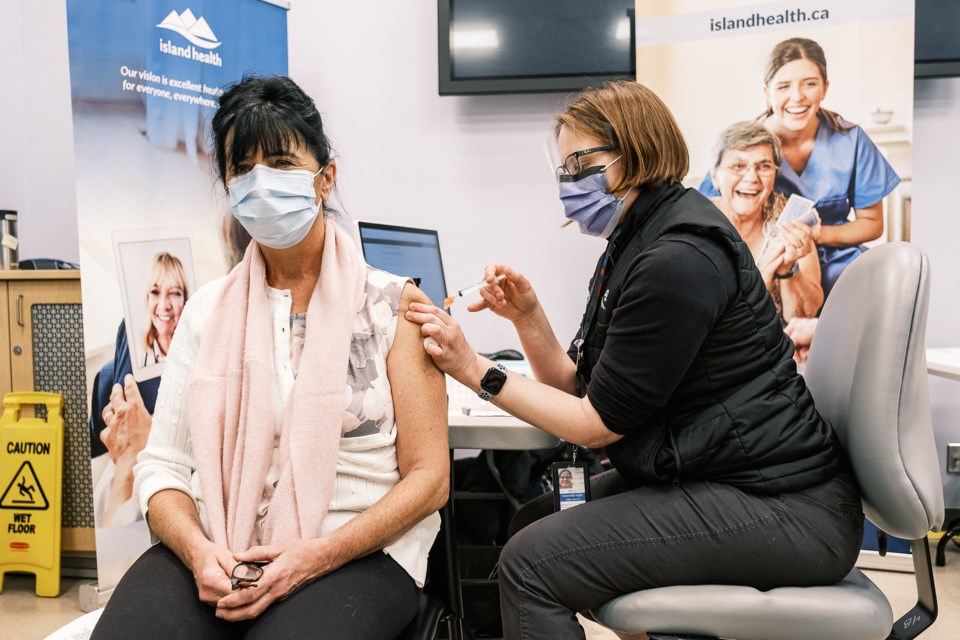B.C. won’t be holding back vaccines and instead plans to vaccinate as many health-care and long-term care workers with first doses as possible this month and next, with second doses to start in February.
“To date, we have delivered 11,930 doses of vaccine to people across British Columbia in every health region now, including over the last five days,” provincial health officer Dr. Bonnie Henry said Tuesday.
The Moderna vaccine, the second vaccine licensed by Health Canada, arrived in B.C. Tuesday with more expected today. It is easier to handle, so it will be sent to rural and remote First Nations communities as well as the North, Interior and some parts of the Island “to be able to provide immunization to smaller long-term care facilities in smaller communities,” Henry said.
The Moderna vaccine can be stored in freezers that can run at around -20 C, while the Pfizer-BioNTech vaccine needs specialized freezers that can drop to -70 C.
“We are working very closely with our First Nations Health Authority and First Nations leadership in B.C. to make sure that we can identify those communities and people at risk as efficiently as possible,” Henry said. It has been working with First Nations on training and supplies are in place.
Both vaccines are “fussy” to use and so Henry made no apologies for fewer vaccinations being administered over the holidays and said people spent a lot of time this weekend in particular training people to safely transport and administer it.
“I know every health authority was busy training, making sure we had the logistics in place, the complexity of pulling together plans for the Moderna vaccine,” Henry said.
The province is committed to getting the vaccines to as many people as possible, safely and efficiently, she said.
Both the Pfizer and Moderna vaccines are licensed as a two-dose regimen and both have an effectiveness of upwards of 80 per cent after two weeks of one dose, Henry said. It’s not known how long that immunity lasts.
“We made the decision that for December and January, all of our doses of both Pfizer and Moderna will be both going to protect people with their first dose because we can do that and protect over almost twice as many people” compared with using those doses to give people a second shot within the 21-28 day period as recommended by the manufacturers, Henry said.
The National Advisory Committee on Immunization allows delaying the second dose, Henry said. On average second doses will begin in February or about 35 days after the first dose.
“I hope there will be some data that shows — it would be just wonderful — if people only needed a single dose, that would make our life so much easier,” Henry said.
The priority list for vaccinations from December through February includes about 150,000 people:
• About 70,000 residents and staff of long-term care
• About 13,000 residents and staff of assisted-living residences
• About 2,000 individuals in the hospital or in the community who have been assessed and are awaiting a long-term care placement
• About 8,000 essential visitors in long-term care and assisted living
• About 30,000 health-care workers providing front-line care in intensive-care units, medical/surgical units and emergency departments, and paramedics
• About 25,000 individuals in remote/isolated First Nation communities
The vaccination schedule for February through March includes about 400,000 people:
• About 260,000 community-based seniors 80 and older (65 years and older for Indigenous seniors and elders)
• Up to 40,000 people experiencing homelessness and/or using shelters, in provincial correctional facilities, in group homes (adults) and in mental-health residential care (adults)
• About 60,000 long-term home-support recipients and staff
• About 20,000 hospital staff, community general practice physicians and medical specialists
• About 25,000 people in First Nation communities




